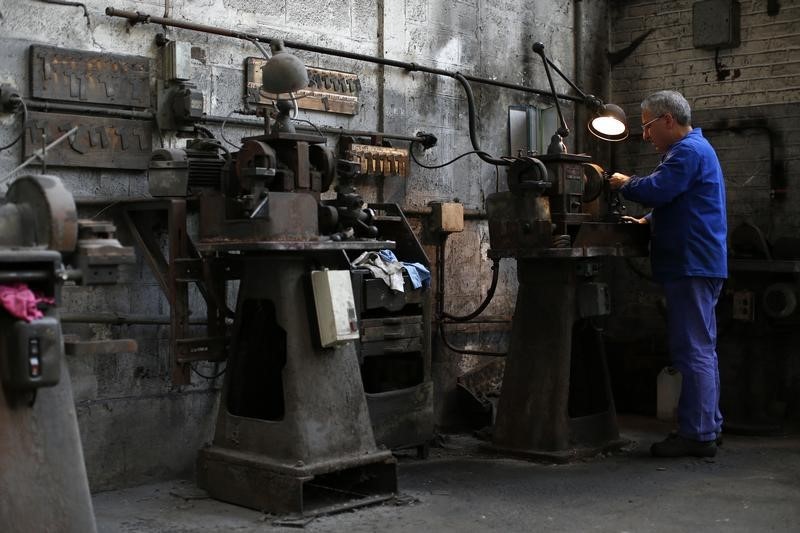(Bloomberg) -- U.K. manufacturers are pushing Prime Minister Theresa May to give them a key role in Brexit negotiations so they can defend the interests of business as Britain leaves the European Union.
Industry advisers on customs, logistics and exports should be on hand during talks in Brussels to inform ministers and civil servants how different proposals would affect trans-European supply chains, Stephen Phipson, the new Chief Executive Officer of the manufacturing lobby group EEF said in an interview Monday.
“Because of the complexity in the integrated supply chains that we’ve got, it’s really important that business sits alongside government in working out the details,” Phipson said. “In an ideal world, nothing would change for business.”
Many U.K. businesses have put investments on hold as they await the outcome of Britain’s Brexit negotiations. Manufacturers are concerned that leaving the EU could lead to an increased administrative burden, with requirements to fill in extra customs declarations and provide certificates of origin.
Planning for ‘Hard’ Exit
“Introducing anything like customs administration into that will have a significant effect on how efficient we are,” Phipson said. For now, “investments are being put on pause. They’re not going abroad yet. We’re in that sort of waiting period.”
On Friday, May secured the recommendation of the European Commission to move the talks onto trade from divorce terms and the priority for business now is to get a transition period agreed at the latest by April, Phipson said. Until then, businesses will continue to plan for the worst, he said.
“A lot of the larger businesses have been doing contingency planning, thinking about what’s the worst case if there’s a hard exit from the EU arrangements,” he said. “Does Friday’s deal put it on pause? Not quite, but it’s a good step in that direction.”
Transition
The EU has indicated negotiations on a transition period after Britain leaves the bloc can start in January, although trade talks won’t start until February or March.
The transition, Phipson said, should last until a new free-trade agreement is fully negotiated, whether that takes the two years sought by May, or the five to seven years EU trade deals normally take to negotiate.
“Hopefully what the transitional deal will say is that it’s business as usual, everything remains the same during the transition period,” Phipson said. “That would give us a good period of stability for the manufacturing sector, which will help them enormously in their shorter term planning.”
Read more: How to Trade Sits at Heart of May’s Brexit Battle: QuickTake Q&A
In terms of the logistics of negotiating the trade deal, Phipson said he wouldn’t expect industry officials to be in the room while the talks are going on. Instead, they’d be “sitting in another room, as a support team on hand to advise on the specific details that will affect things like integrated supply chains,” he said.
